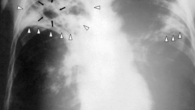
Scientists have listed the products of the “longevity diet”
0
According to Professor Walter Longo, a professor at the Leonard Davis School of Gerontology at the University California, from research in laboratory animals to epidemiological studies in humans, is giving scientists a clearer picture of what nutrition may give the best chance for a longer, healthier life.
In the article, which includes a literature review, Longo and co-author Rosalyn Anderson of the University of Wisconsin describe the “longevity diet,” a multi-component approach based on research on various aspects of diet, from food composition and caloric intake to the length and frequency of fasting periods.
< p>“We investigated the relationship between nutrients, starvation, genes and longevity in short-lived species and combined these relationships with clinical and epidemiological studies in primates and humans, including long-lived ones,” said Longo.
What and when to eat for longevity
Italian-American biogerontologist and cell biologist, known for his research on the role of fasting and nutrient response genes in cellular defense, aging, and disease, and for suggesting that lifespan is regulated by similar genes and mechanisms in many eukaryotes.
The scientists analyzed hundreds of studies of nutrition, disease, and lifespan in laboratory animals and humans and combined them with their own research on nutrients and aging.
The article also included an overview of different forms of fasting, including a short-term response-mimicking diet the body to fasting, intermittent fasting (frequent and short-term) and intermittent fasting (two or more days of fasting or diets that simulate fasting). that twice a month).
Nutrition for longevity could look like in real life:
“Lots of legumes, whole grains and vegetables; some fish; no red meat or processed meat and very little white meat; low content of sugar and refined grains; a good amount of nuts and olive oil and some dark chocolate.”









Leave a Reply